
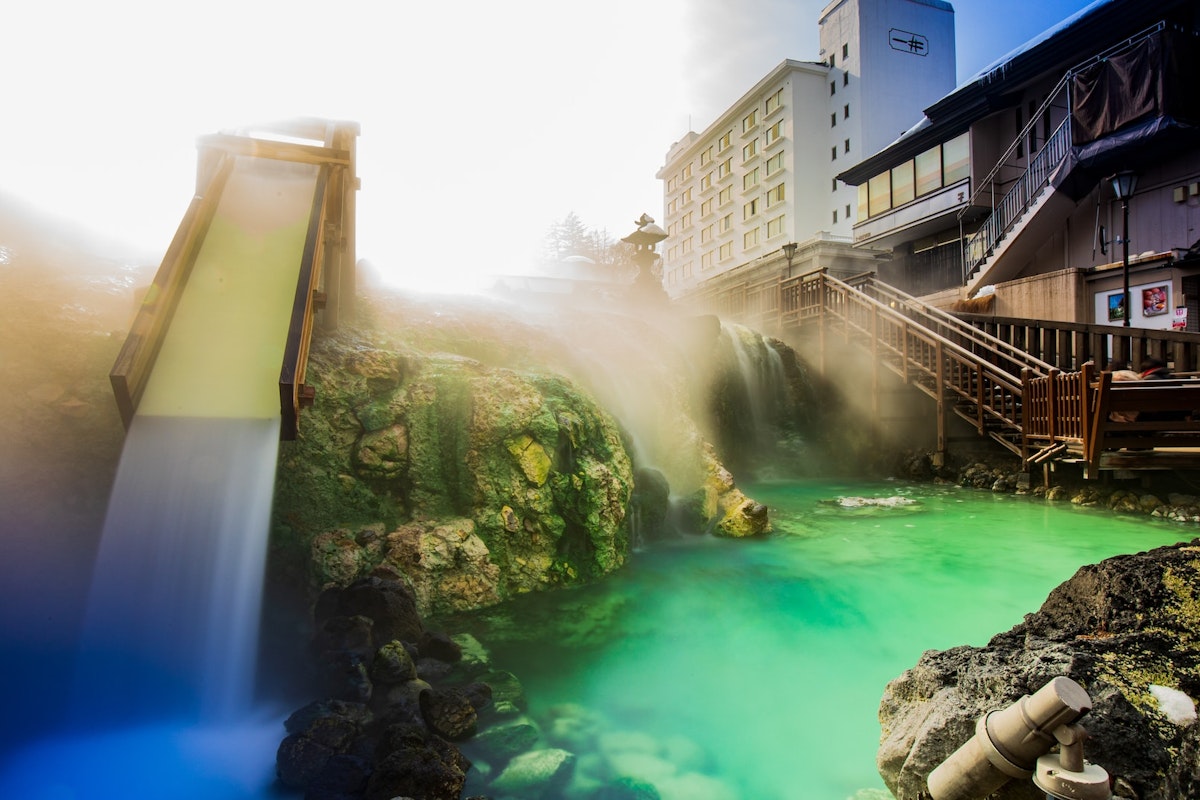
The term 'Onsen' may evoke images of steamy waters nestled amid Japan's picturesque landscapes for those familiar with Japanese culture. These hot springs, known as 'Onsen' in Japan, represent a crucial aspect of the country's cultural fabric and a treasured pastime for both locals and tourists alike. Emerging from Japan's volcanic activity, these naturally heated baths offer more than just warmth and relaxation. They are the epicenters of a deep-rooted tradition that interweaves hygiene, wellness, and socialization, extending beyond the physical into the realms of the spiritual and the communal.
In this article, we will delve into the world of Japanese hot springs, starting with an exploration of what Onsens are and their significance in the Japanese way of life. We'll uncover the rituals and etiquette tied to the Onsen experience and discuss the science behind their acclaimed healing powers. As we walk you through personal experiences and recommend Onsens, we aim to prepare you for a visit and imbue you with a sense of respect and appreciation for this enduring Japanese tradition. Prepare for a journey that promises to be as much about cultural immersion as it is about wellness and rejuvenation.
The Onsen holds an esteemed place in Japanese society, having been woven into the country's cultural, social, and spiritual tapestry for thousands of years. Records of Onsen usage date back to the 8th century, illustrating their longstanding relevance. Their healing waters are known to soothe myriad ailments, leading to their significant role in the Japanese tradition of "Toji," a therapeutic soak in hot spring waters to boost health and wellness.
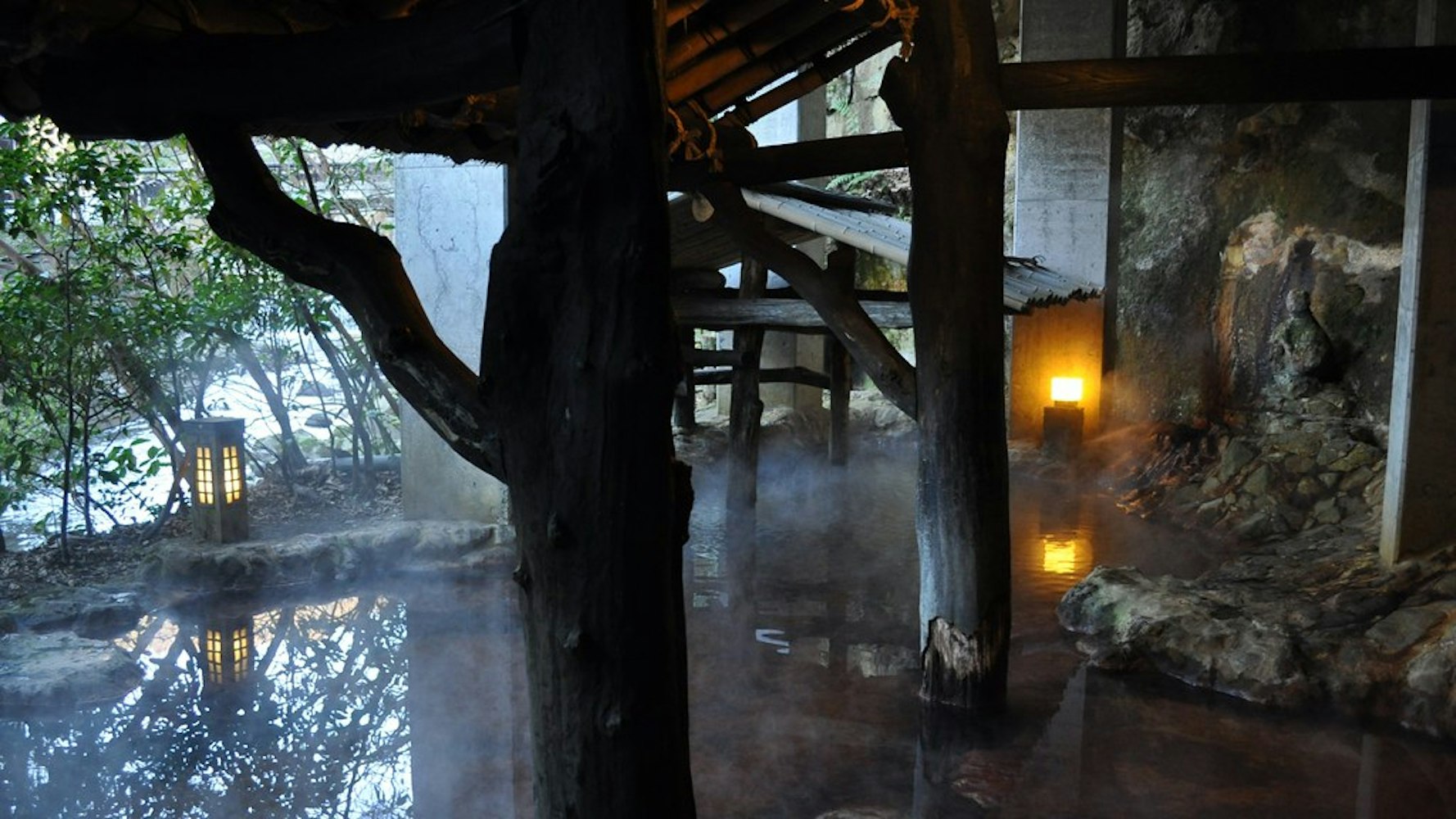
Image Credits: David McKelvey
On a deeper level, many Onsen are located near Shinto shrines or Buddhist temples, strengthening their spiritual significance. The ritualistic act of bathing in these sacred waters is thought to purify the spirit and nurture a sense of inner peace. Onsen, therefore, serves as a bridge connecting the physical and spiritual dimensions of wellness in Japanese philosophy. Socially, Onsen are communal spaces, where friends, families, and even strangers gather for relaxation and open communication, sans the trappings of social hierarchy. Traditional holidays and festivals often include visits to the Onsen, further entrenching these hot springs in the collective Japanese lifestyle.
Onsen are as diverse as the landscapes they are found in, classified based on the mineral composition of their waters and their settings.
Sulfur Onsen: These Onsen have waters rich in sulfur, which is known to soothe chronic bronchitis, hardening of the arteries, and chronic dermatitis.
Salt Springs (Enkaburo Onsen): The saline waters of these hot springs are said to be beneficial for wounds and poor circulation.
Iron Springs (Gantetsu Onsen): These springs, laden with iron, are believed to assist with anemia and chronic skin diseases.
Acidic Springs (Sansei-sen): The acidic waters can act as a natural exfoliant and may help with skin conditions.
The setting of the Onsen also varies, from Rotenburo (Outdoor Bath) situated in the open air and surrounded by the natural beauty of Japan's landscapes, to Tatami Bath, where bathers can soak while sitting on a tatami floor.
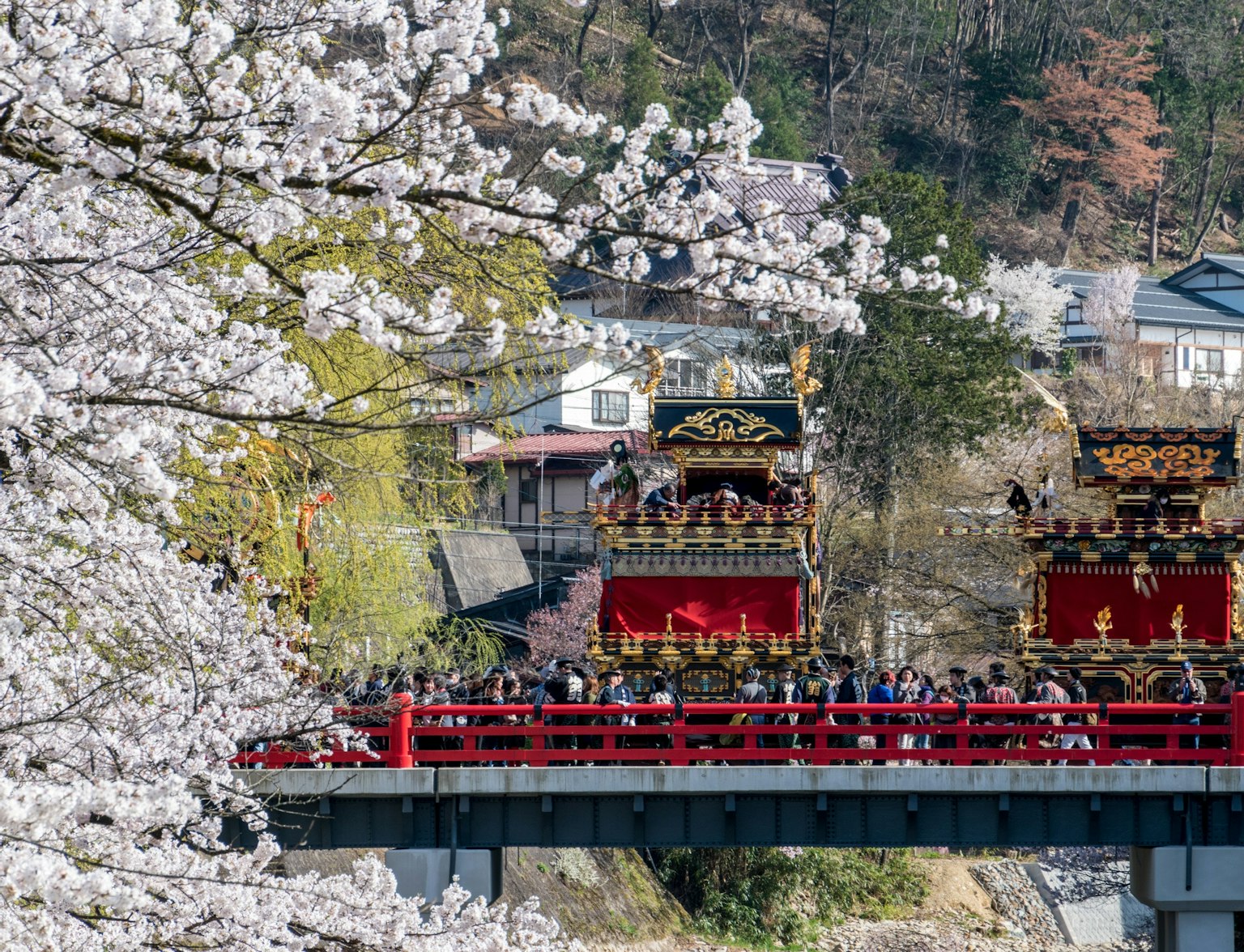
Experience Takayama onsen with this tour.
To prepare for an Onsen, cleanliness is not only crucial but revered. The act of bathing before entering the hot springs is an integral part of the Onsen ritual, underscoring the Japanese cultural emphasis on purity. Most Onsen facilities provide a designated area for this purpose, equipped with stools, showers, buckets, and a range of toiletries. Here, you are expected to sit and thoroughly clean yourself with soap and water, ensuring to rinse off all soap suds and shampoo residue before entering the bath. This process ensures that the Onsen water remains as pure as possible, contributing to a shared, harmonious experience for all bathers.
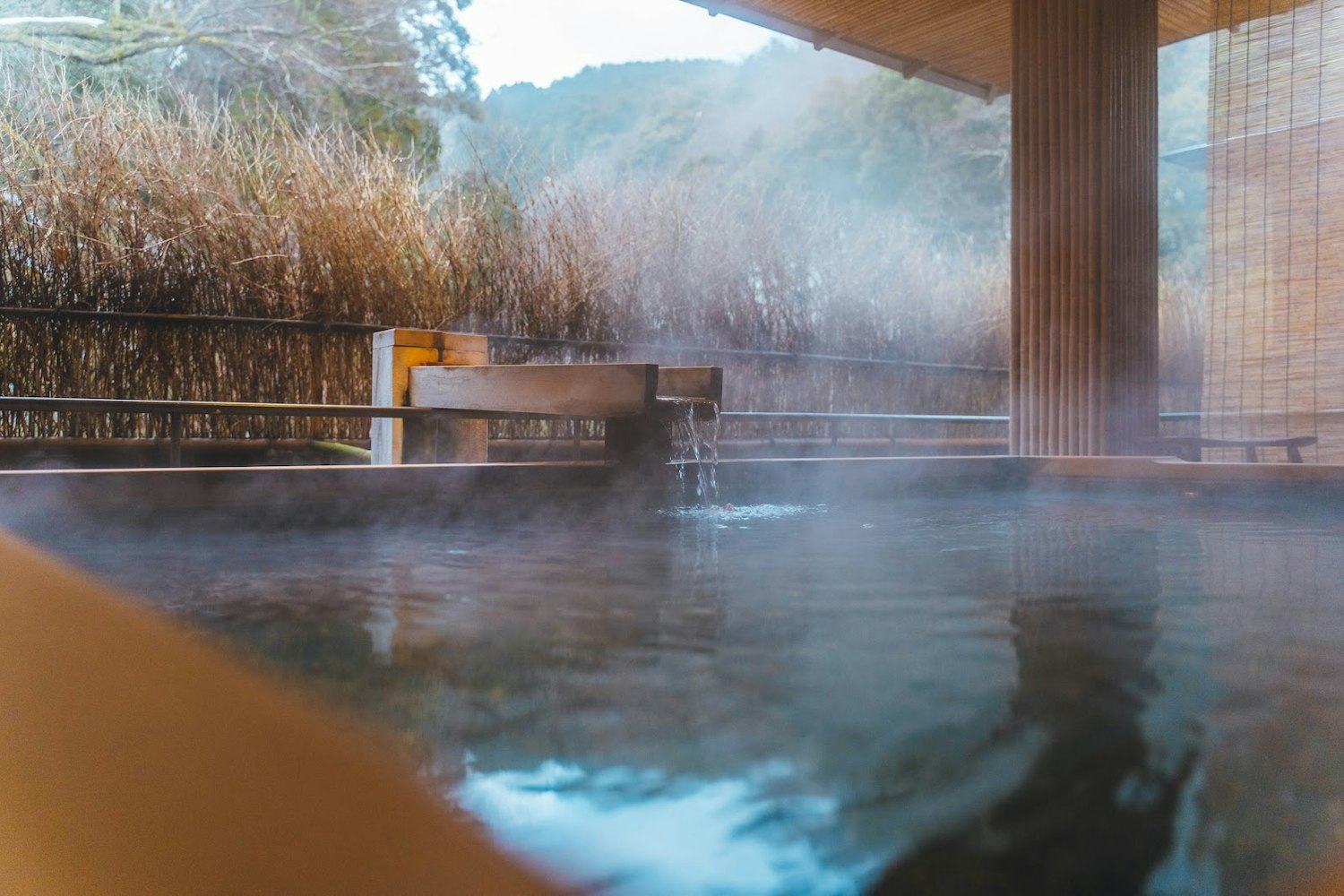
After cleaning, gently ease yourself into the Onsen, allowing your body to acclimate to the hot water temperature. This practice ensures you don't disrupt the tranquil environment or make too much noise, maintaining the Onsen's serenity. It is considered a mindful practice, encouraging bathers to enter the Onsen in a calm and composed manner, a physical reflection of the mental tranquility the experience aims to cultivate.
Once you've immersed yourself in the Onsen, it's vital to adopt respectful behavior to maintain the peaceful atmosphere. Japanese culture values silence and serenity, so it's crucial to keep noise levels to a minimum. Avoid splashing, swimming, or making disruptive noises, as the Onsen is not a place for boisterous activity but a sanctuary of calm and relaxation.
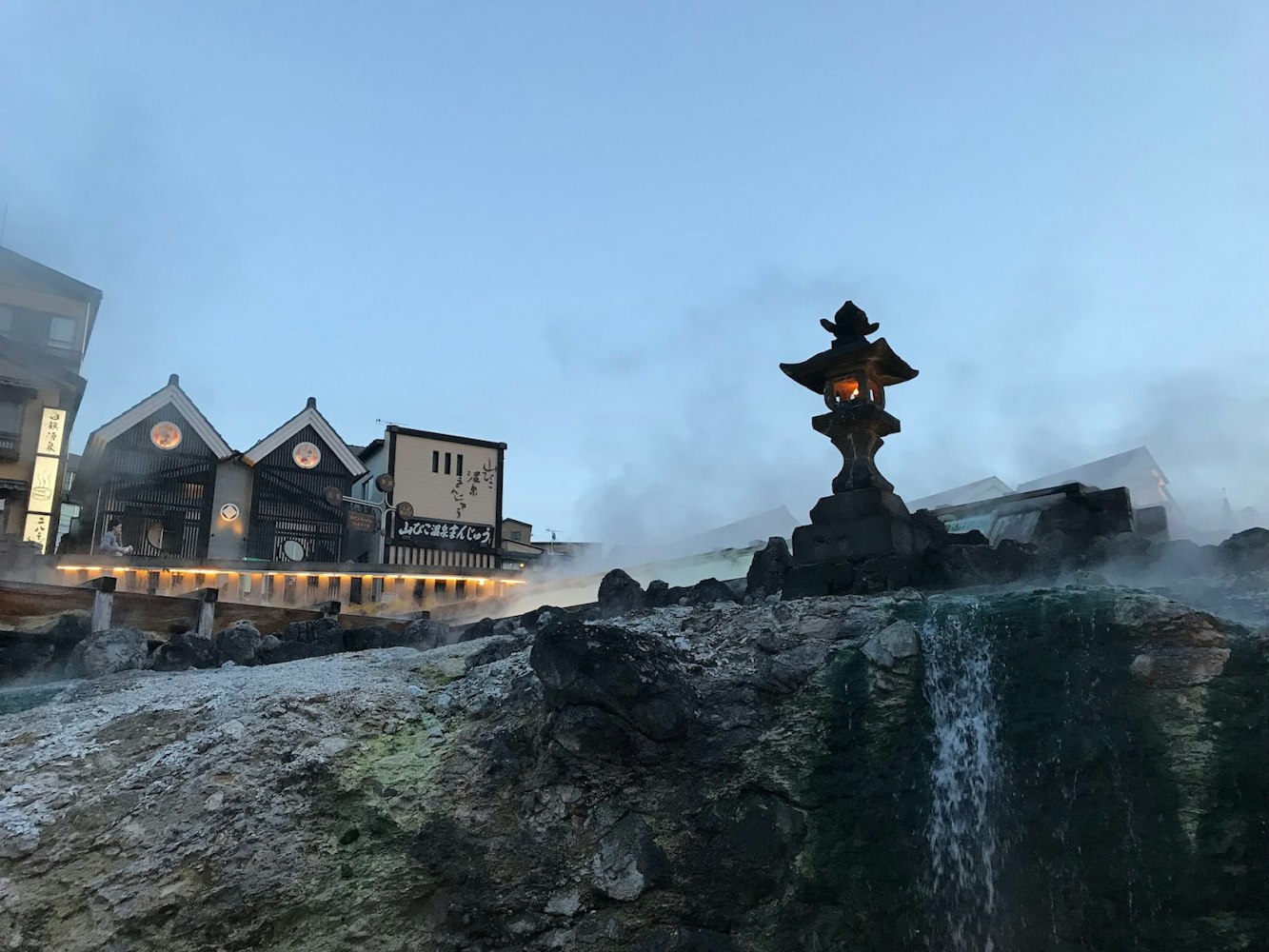
If you have long hair, make sure to tie it up to prevent it from touching the water. Most Onsen provides small towels, which can be used to wipe sweat from your face. It's considered bad etiquette to immerse these towels in the Onsen water. Instead, rest them on your head or on the side of the bath. Keeping the shared water clean and undisturbed is a key part of Onsen etiquette, reinforcing the communal respect that underpins this cultural practice.
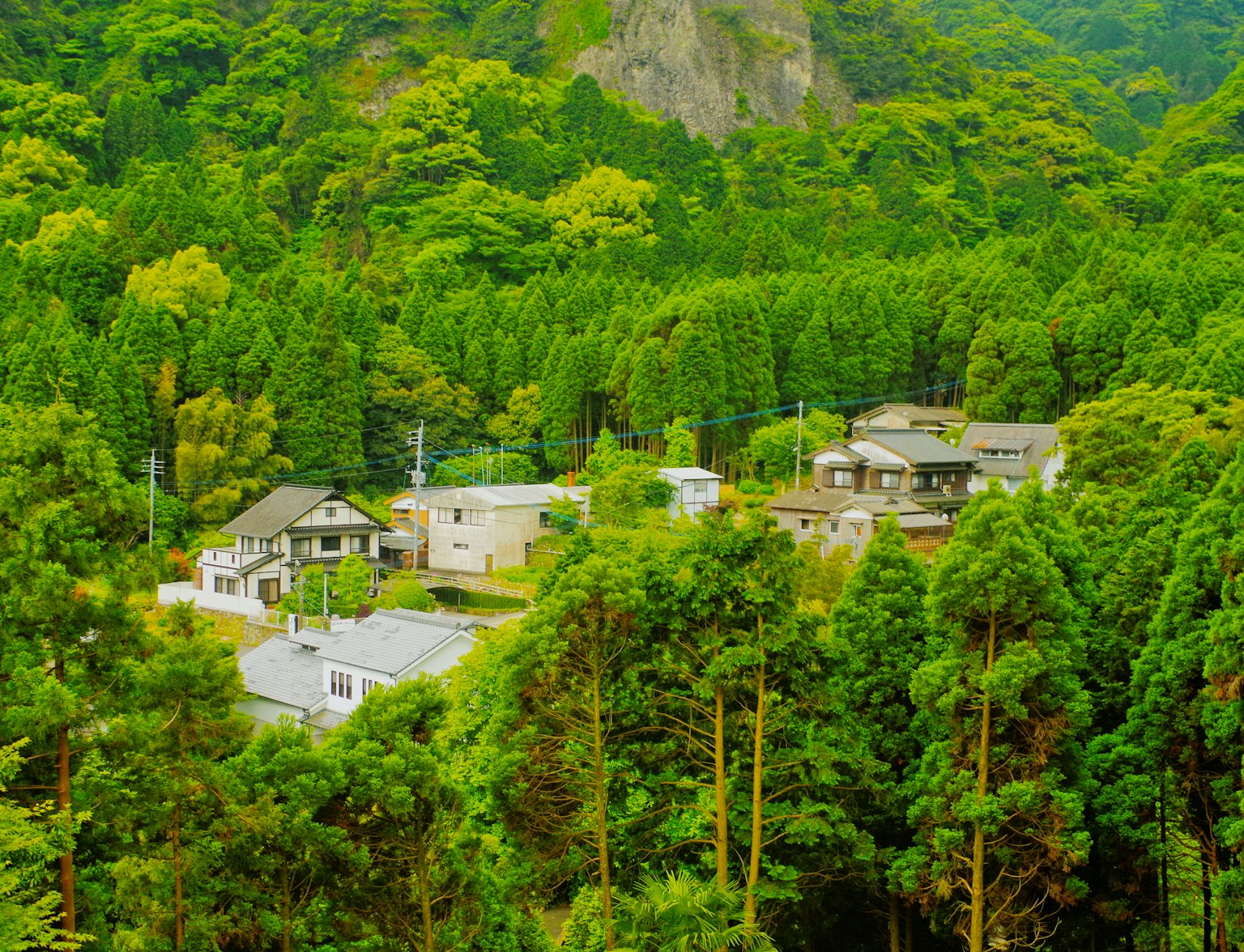
Have a chance to visit Ureshino Onsen with this tour.
Just as there are rules on what to do, there are clear guidelines on what not to do in an Onsen. It's frowned upon to enter an Onsen if you're under the influence of alcohol or if you're suffering from a communicable disease. Both situations can compromise the safety and comfort of other bathers and disrupt the tranquil environment.
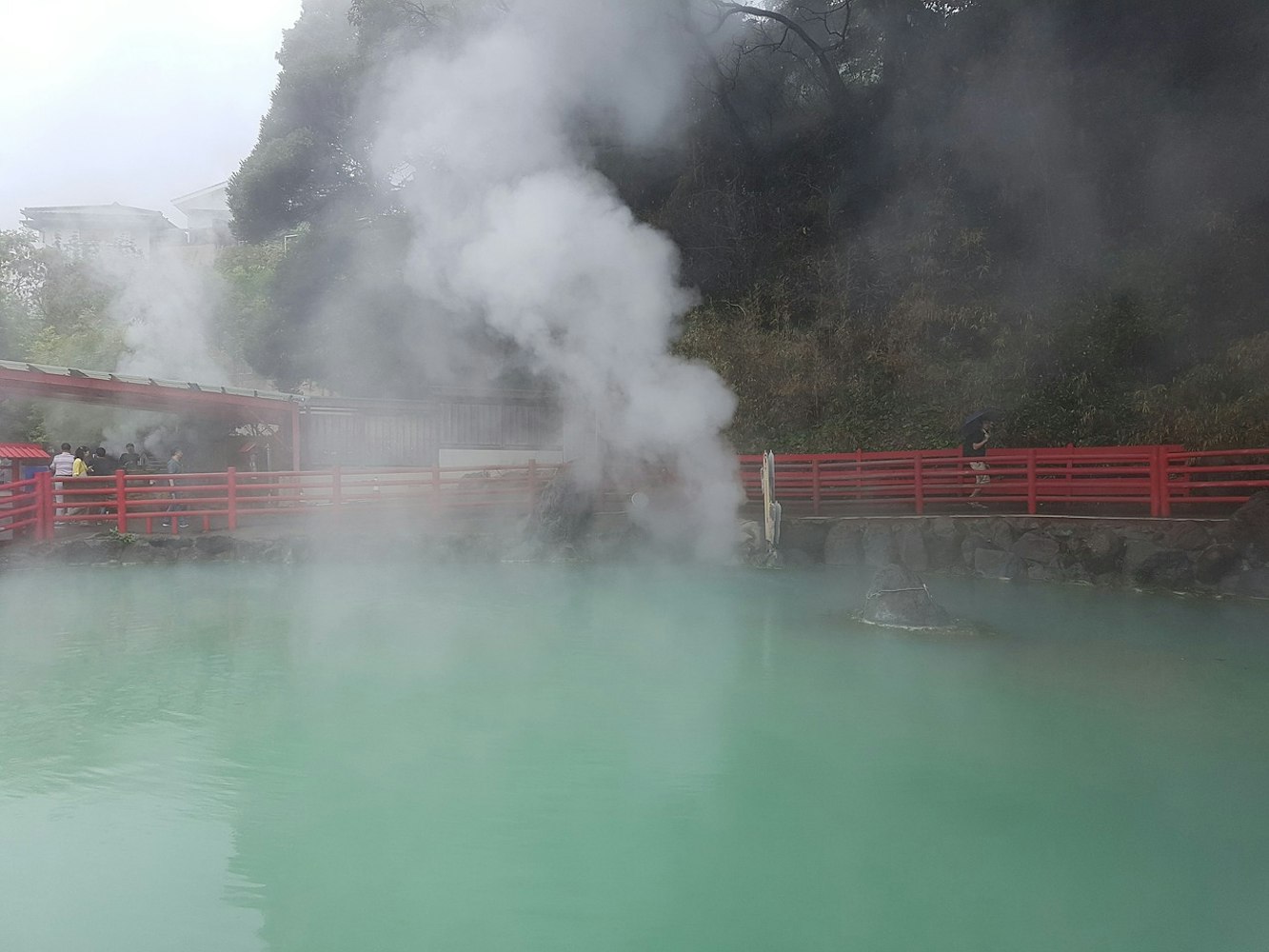
Using large bath towels in the water is also a no-no. The only towels involved should be the small ones provided specifically for wiping sweat, and these should never enter the water. Additionally, while it may seem tempting to enjoy snacks or drinks while soaking in hot water, eating and drinking are generally prohibited to maintain cleanliness and tranquility. Finally, respecting others' privacy, especially in mixed-gender Onsen, is crucial.
Regarding tattoos, traditional Onsen rules can be quite strict due to the historical association of tattoos with the Yakuza. However, as tattoos have gained global popularity as a form of self-expression, and with Japan's growing influx of international tourists, many Onsen are adjusting their rules to become more inclusive.
Some Onsen may allow entry if tattoos can be covered with a patch or bandage, but it's best to check the specific Onsen's tattoo policy in advance. This nuance in Onsen etiquette serves as a reminder of the dynamic interplay between cultural tradition and modern adaptation in Japan's rich societal landscape.
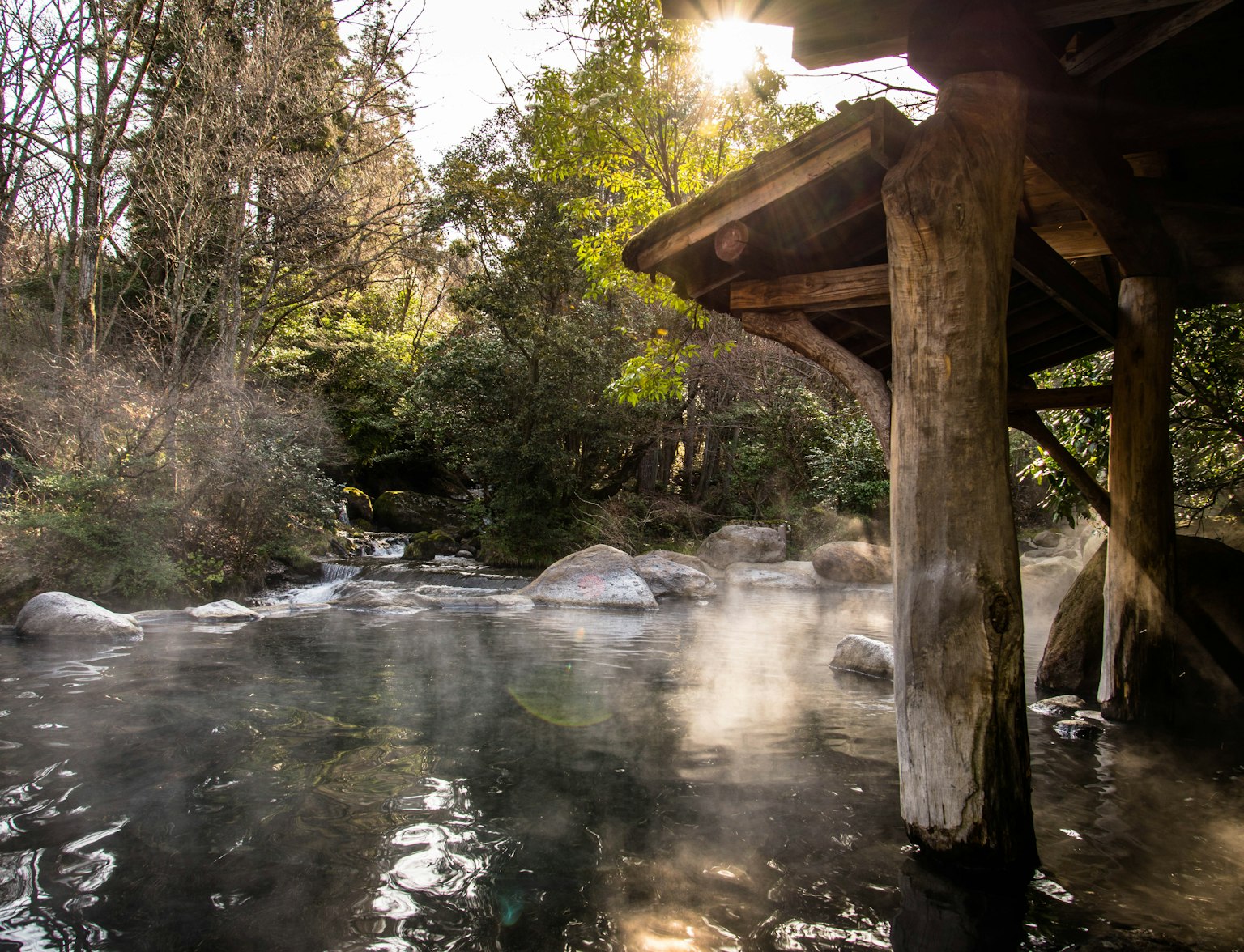
Visit various ryokan hot springs in Kurokawa Onsen.
Onsen, or Japanese hot springs, are lauded not just for their relaxation qualities, but also for their myriad health benefits. Enriched with a variety of minerals absorbed from the earth—such as sulfur, sodium, calcium, magnesium, and iron—these thermal waters have been part of the Japanese wellness tradition for centuries. Bathing in an Onsen can boost circulation, thanks to the hot water causing blood vessels to dilate and tissues to oxygenate efficiently. The warmth also encourages perspiration, assisting the body in detoxifying and eliminating waste products. Additionally, the buoyancy of water can alleviate physical tension, providing relief from muscle and joint pain.
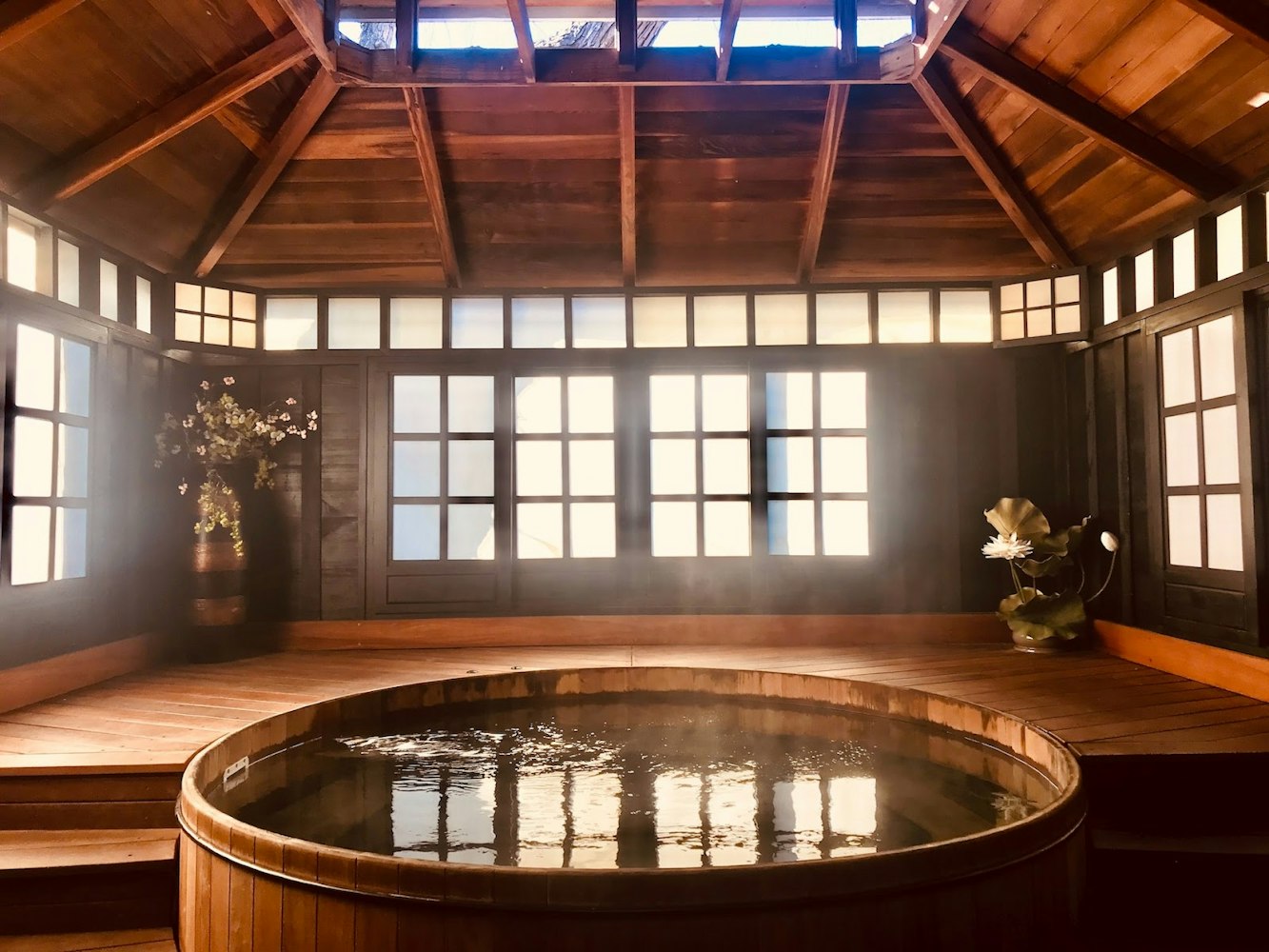
The types of minerals present in an Onsen determine its specific health benefits. Sulfur springs, for example, can soothe chronic respiratory and skin ailments, while iron springs may aid with anemia by allowing absorption of iron through the skin. Saline Onsen, rich in sodium and chloride, can improve skin health and aid in conditions like hypertension and arteriosclerosis. The tranquil environment of an Onsen bath further contributes to mental well-being by significantly reducing stress levels and promoting a sense of serenity.
Japan is home to thousands of Onsen, each offering its unique blend of mineral-rich waters, scenic beauty, and traditional charm. If you're planning a visit, here are a few must-visit Onsen that you should consider:
Hakone Onsen: Hakone is one of the most famous hot spring resort towns in Japan, located near Mount Fuji. It boasts a wide variety of baths, from resort hotels to traditional Ryokan (Japanese inns), and offers stunning views of Mount Fuji from certain outdoor baths. Its proximity to Tokyo makes it an ideal spot for both locals and tourists.
Beppu Onsen: Located in Oita Prefecture on the island of Kyushu, Beppu is renowned for being one of Japan's 'hells' (jigoku), so-called because of its bubbling hot springs. This destination offers the chance to bathe in mud, sand, and even steam baths, each with its unique healing properties.
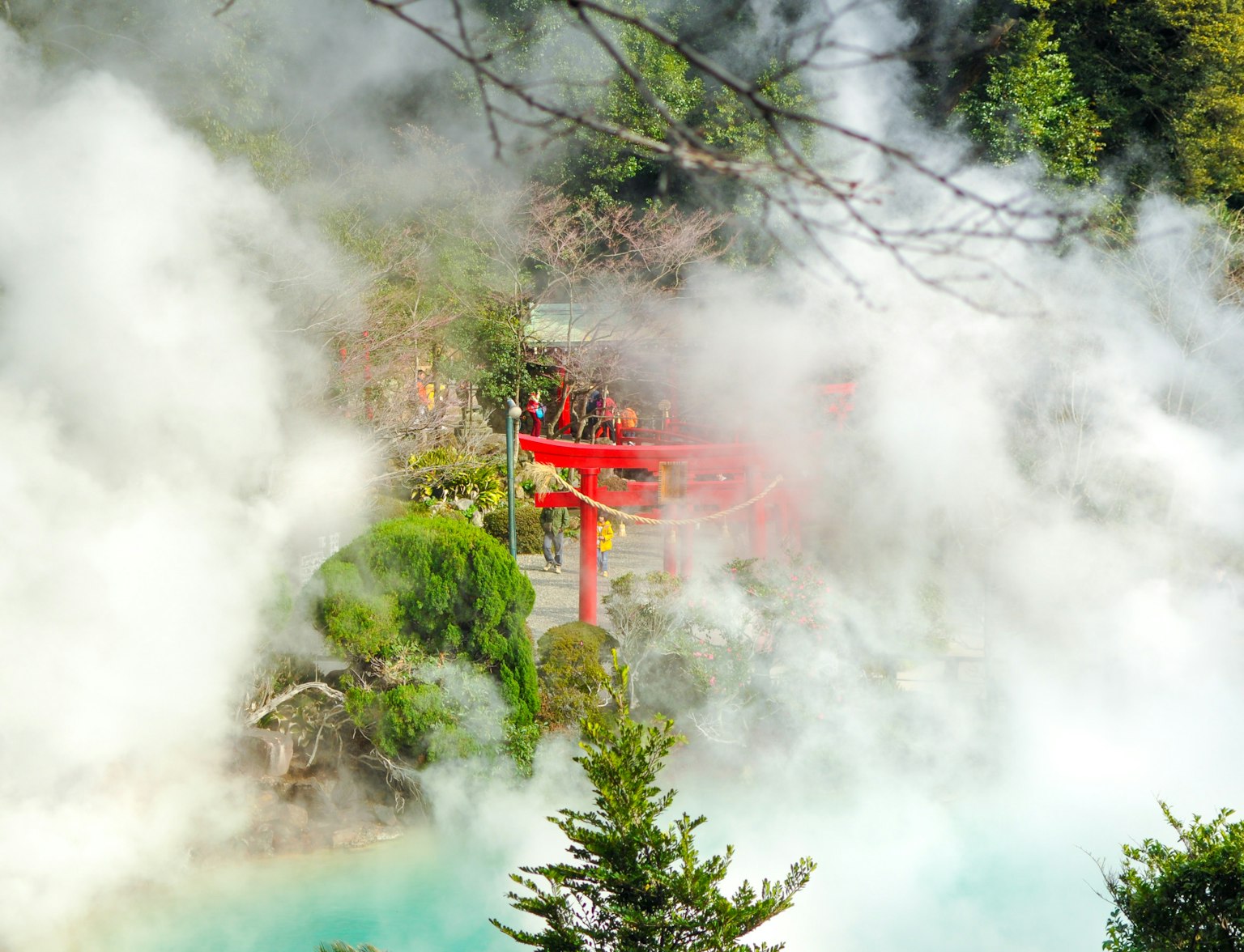
Visit Beppu Onsen with this tour.
Kusatsu Onsen: Found in Gunma Prefecture, Kusatsu Onsen is recognized for having some of the most acidic waters in the country. It's believed to cure every ailment except lovesickness. The town also features a unique bathing method known as yumomi, where the hot water is cooled down with large wooden paddles.
Noboribetsu Onsen: This Onsen is part of Noboribetsu Onsen-cho, Hokkaido's most famous hot spring resort. It offers a wide variety of waters, containing minerals like sulfur, salt, and iron. The area is also known for Jigokudani or "Hell Valley," a scenic spot that showcases the hot steam vents, sulfurous streams, and other volcanic activity of the area.
Dogashima Onsen: Situated in the Izu Peninsula, Dogashima Onsen offers saltwater hot springs, a rarity in Japan. Bathing in these waters is said to have rejuvenating effects on the skin. The Onsen, combined with the picturesque views of the peninsula's rugged coastline, provides a uniquely therapeutic experience.
Immersing oneself in a Japanese Onsen is an experience that extends far beyond a simple hot bath. It's an intricate dance with age-old customs, a moment of peace stolen from a busy day, and a testament to Japan's ongoing respect for nature's healing powers. With a rich tradition tied to health benefits, it’s no surprise that these hot springs remain an integral part of the Japanese lifestyle and offer a unique cultural experience for visitors. Whether you're seeking tranquility, a cultural immersion, or the curative properties of mineral-rich waters, Onsen is a must-experience aspect of Japan.
As we conclude our guide, we hope you now have a deeper understanding and appreciation of Japanese hot springs. From their social and cultural significance to the intricacies of Onsen etiquette and the potential health benefits they offer, there is a richness and depth to these thermal waters that is inherently Japanese. And should you find yourself in Japan, don’t miss out on the opportunity to experience an Onsen firsthand. After all, in the warmth of these waters, you’ll find not just relaxation, but also a deeper connection to the heart and soul of Japan.



